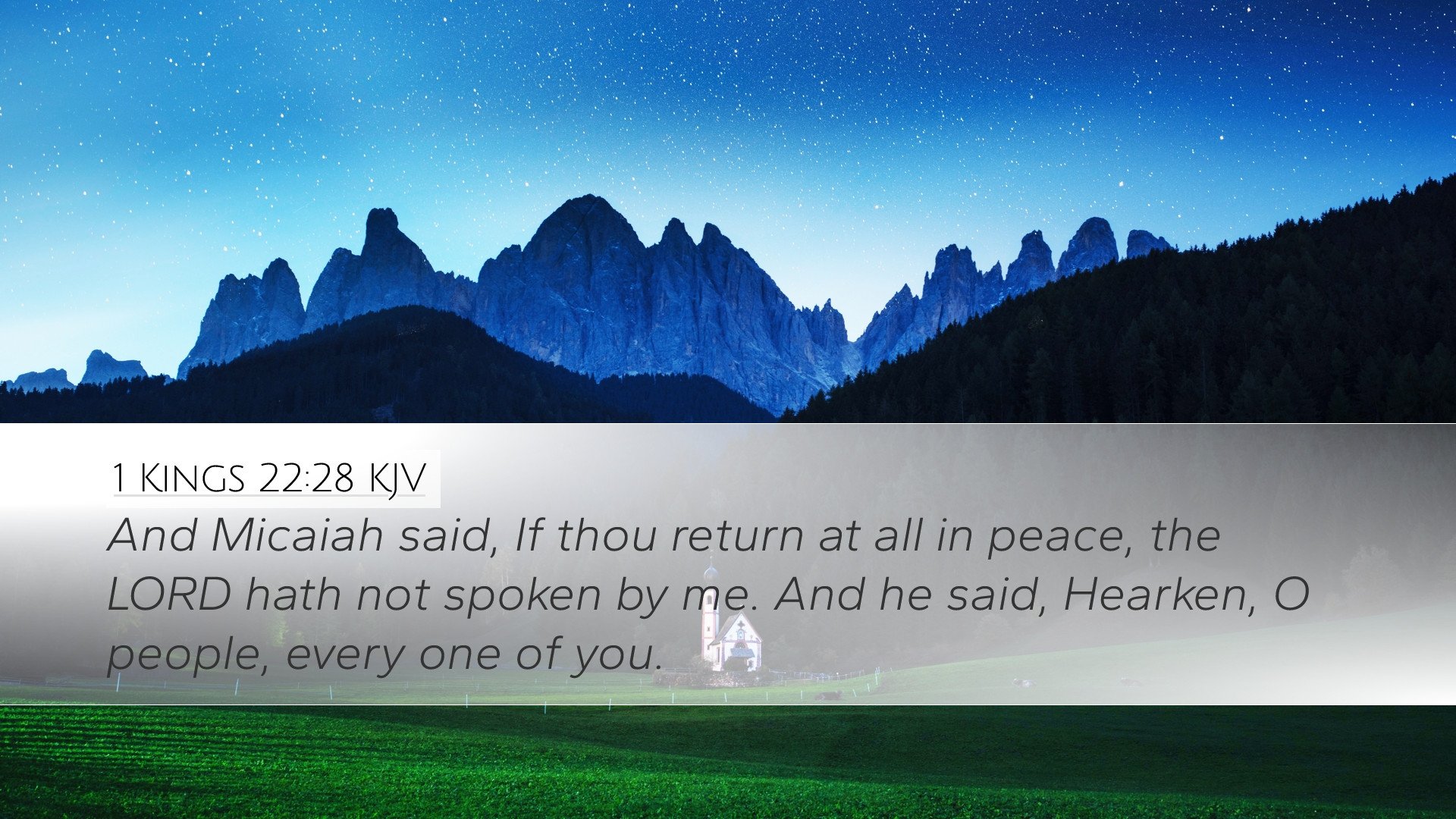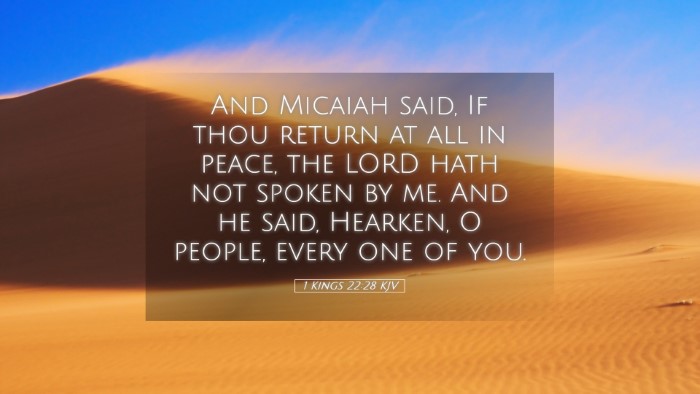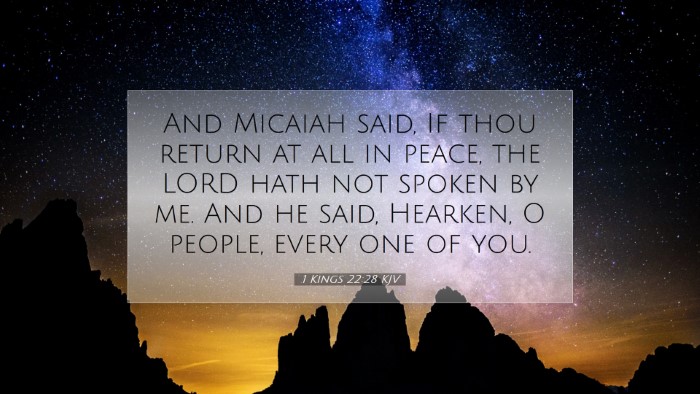Commentary on 1 Kings 22:28
Verse (1 Kings 22:28): "And Micaiah said, If thou return at all in peace, the LORD hath not spoken by me. And he said, Hearken, O people, every one of you."
Introduction
This verse encapsulates the moment of confrontation between King Ahab of Israel and the prophet Micaiah. It serves as a pivotal point in the context of Israel's history, emphasizing themes of prophetic truth versus the deceptive counsel of false prophets.
Contextual Background
King Ahab sought to go into battle against Ramoth-Gilead and consulted various prophets who affirmed his intentions. Micaiah is brought in as a contrast to these prophets, revealing the precarious situation of Israel under Ahab's leadership.
The Character of Micaiah
Micaiah is portrayed as a servant of the Lord whose commitment to proclaiming God’s true message sets him apart from the other prophets who are more concerned with pleasing Ahab.
Analysis of the Verse
- “If thou return at all in peace”: Micaiah asserts that the outcome of the battle will indicate whether he has spoken the true word of the Lord. This conditional statement highlights the prophetic role in declaring the truth irrespective of popular sentiment.
- “the LORD hath not spoken by me”: Here is a declaration of the seriousness of prophetic ministry. Micaiah understands that false prophecy leads to dire consequences, emphasizing the importance of truth in communication with God.
- “Hearken, O people, every one of you”: This call suggests a public acknowledgment of the impending consequences of rejecting God’s truth. It places an emphasis on accountability both for leaders and the people.
Theological Insights
- The sovereignty of God is paramount in this verse, demonstrating that God’s will prevails despite human intentions.
- The need for discernment is underscored. The contrast between Micaiah and the other prophets illustrates the necessity of seeking genuine counsel from God.
Commentary Insights
Matthew Henry's Perspective
Henry emphasizes Micaiah's integrity and faithfulness to God’s word, contrasting him with the flattering yet false prophets who mislead Ahab. His commentary invites readers to consider the personal responsibility of hearing and heeding God’s truth even when it contradicts popular opinion.
Albert Barnes' Observations
Barnes highlights the prophetic declaration as a stark warning to Ahab, noting that Micaiah’s words reveal God’s disapproval of Ahab’s ventures. This serves to illustrate the overarching principle that leaders must align with divine will to ensure their success.
Adam Clarke’s Interpretation
Clarke discusses the cultural significance of prophecy in Israel’s monarchic context. His commentary suggests that Micaiah represents the true prophetic tradition, standing firm against the tide of falsehood and emphasizing the horror of rejecting God’s commands.
Practical Applications
- For Leaders: It serves as a reminder of the heavy responsibility that accompanies leadership roles, urging leaders to seek divine counsel rather than succumbing to the pressure of popular opinion.
- For Congregants: The need for discernment in spiritual matters is paramount; believers are encouraged to weigh prophetic utterances against the scripture.
- For Theological Students: This verse illustrates the tension between divine truth and human authority. It encourages students to engage critically with textual interpretation and to appreciate the historical context of prophetic literature.
Conclusion
The stark reality presented in 1 Kings 22:28 compels us to confront the truth of God amidst a world filled with misleading voices. Micaiah's bold proclamation serves as a reminder of the importance of fidelity to God's word, the peril of ignoring His counsel, and the serious implications of the prophetic ministry.


